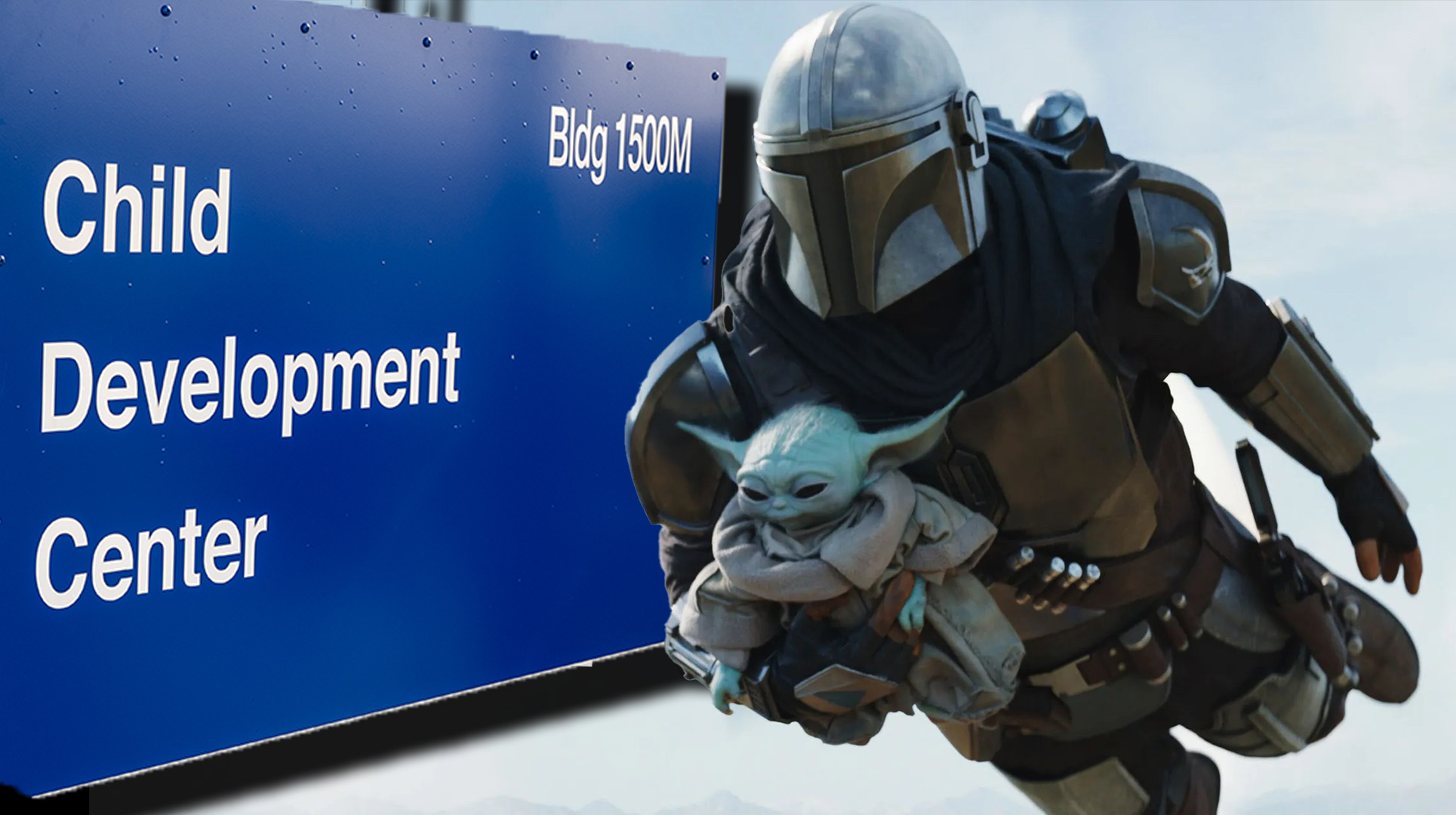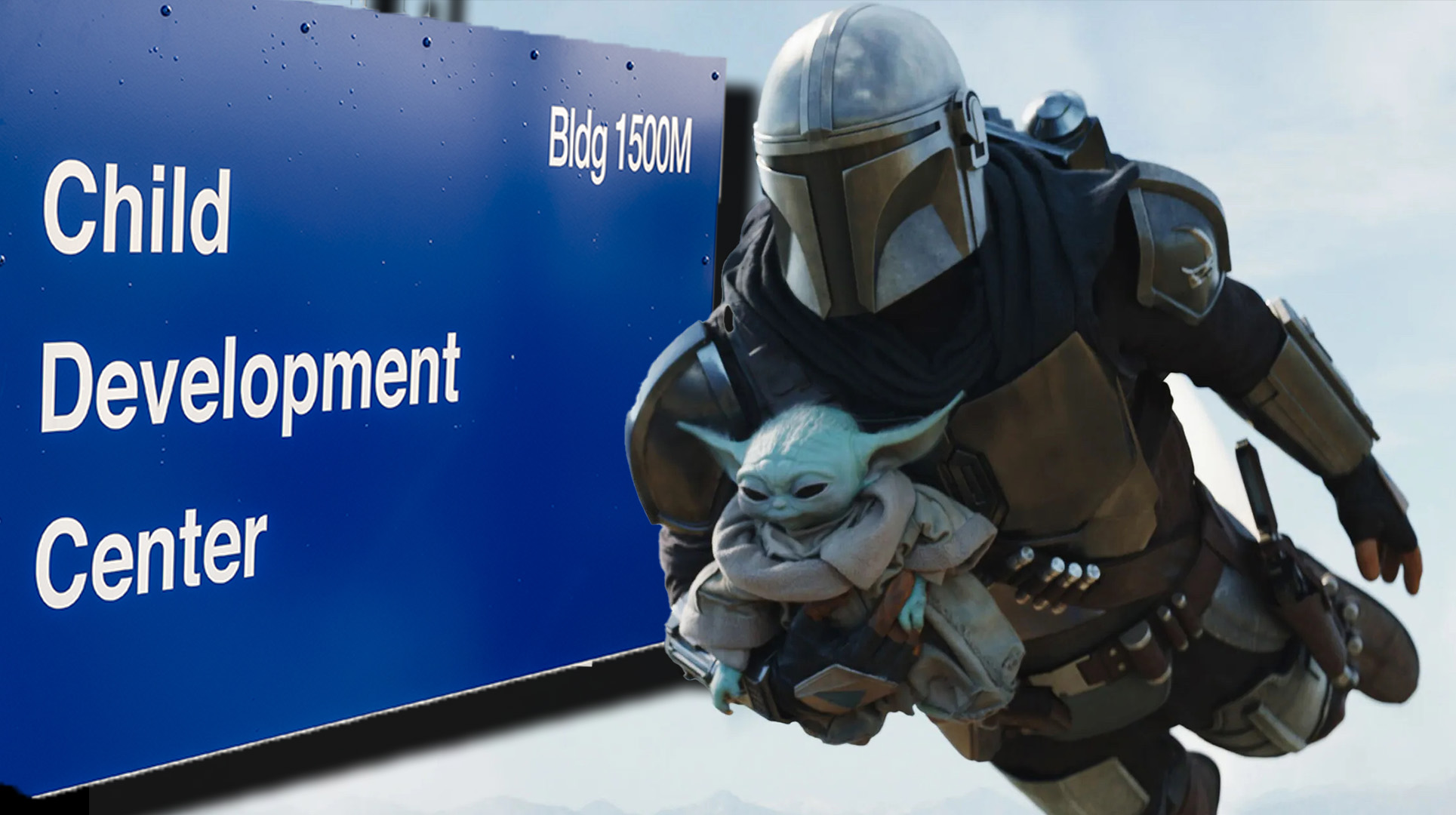

When “The Mandalorian” first dropped on Disney+, fans saw it as a bold new chapter in the Star Wars universe: a lone warrior traversing the galaxy, balancing brutal fights with a mysterious new mission.
Veterans, on the other hand, saw something else entirely.
They saw a burned-out noncommissioned officer with a dependent he didn’t expect to have, operating on zero support, questionable gear, and a timeline no one bothered to explain.
Because let’s be honest — Din Djarin isn’t some elite space assassin. He’s a tired E-6 just trying to get a kid to daycare before everything around him collapses.
Right place, wrong time, too many missions
Every episode of “The Mandalorian” plays out like a field op that was supposed to be easy but immediately spiraled out of control.
Take the first season: Djarin gets tasked with a basic retrieval mission. Simple, right? Locate the target, grab it, come home. But then command forgets to mention that the “target” is a child with force powers, and oh, by the way, half the galaxy wants to kill him.
Sound familiar? If you ever picked up a “routine” assignment only to realize you were being sent directly into international politics and no one upstairs cared, you already understand Mando’s situation.
He isn’t being sent into danger because he’s the best. He’s being sent because he’s available. And because he won’t say “no.” Classic NCO mistake.
His gear is broken, his transport sucks, and command isn’t answering the radio
The Razor Crest, Djarin’s trusty ship, might as well be a 5-ton truck held together by zip ties and bad decisions. It’s constantly breaking down, getting impounded, or just outright destroyed.
His armor? Outdated and pieced together until he finally earns enough “hazard pay” to upgrade it. Even then, no one issues him any updated training. He’s got to figure it out himself.
And communication? Forget it. Whether it’s the Guild, the New Republic, or the Mandalorians hiding underground, nobody’s answering calls unless it benefits them directly. Most of the time, he gets new intel in the worst way possible — through blaster fire.
This isn’t the life of a space hero. It’s the life of an NCO, deployed or at home on a field op, with a radio that doesn’t work or a phone that doesn’t get reception on base, a vehicle that’s leaking coolant, and a supervisor who says, “You’ll be fine, just check in every few hours.”
The mission keeps changing, and no one’s sure why
One of the most frustrating parts of “The Mandalorian” — and real life in uniform — is how often the mission parameters change halfway through.
First, Djarin is told to retrieve the child. Then he decides to protect the child. Then he’s trying to find Jedi. Then he’s trying to find Mandalorians. Then he’s trying to find someone who knows someone who might know a Jedi.
At no point does anyone clearly define success. He’s just doing stuff because someone said it’s important.
Veterans know the feeling of being on a never-ending detail where every completed task somehow creates three more. “Mission creep” isn’t just a term here. It’s practically the title of the show.
Din Djarin is not a cool lone wolf. He’s an exhausted squad leader who needs a nap.
Despite the armor, the gadgets, and the galaxy-hopping, Djarin is painfully relatable for anyone who’s ever held a clipboard, led a team of young privates, and realized none of them packed water.
He’s constantly operating in a state of mild panic, doing everything himself because trusting anyone else usually leads to disaster. He’s exhausted, underpaid, and quietly carrying the emotional burden of a command structure that bailed on him a long time ago.
If you ever see him staring out over a desert landscape for a full 30 seconds in complete silence, that’s not stoicism. That’s a man mentally debating whether to quit and move back in with his parents on what’s left of Mandalore.
The Child (Grogu) is a lot like the ‘FNG’ you have to babysit
Grogu is adorable, powerful, and completely uncontrollable. He wanders off constantly. He messes with sensitive equipment. He causes international incidents because he doesn’t understand that you’re not supposed to steal frog eggs.
And through it all, Djarin keeps trying to juggle his primary mission with keeping his “kid” alive, even as the universe collapses around them.
In some ways, Grogu is a lot like a junior soldier who’s been in the unit for a month and still gets lost on the way to the armory. And if you’ve ever had to watch the ‘new guy’ while also getting your phone blown up with incessent texts from the OIC asking about the location of some piece of paperwork that you know is right there on his desk in front of him, then you’ll recognize that look Djarin gives Grogu every time he tries to touch something explosive. It’s the silent calculation: “How mad is command going to be if I just let this happen?”
Very mad. But not mad enough to actually help.
His friends are all veterans who got out and are living questionable civilian lives
Every “ally” Djarin meets feels suspiciously like an old squadmate who’s “doing great” after getting out but also somehow living off-grid, running minor scams, and occasionally fighting law enforcement.
Greef Karga? Former company gunny who’s now a shady middle manager.
Cara Dune? Former shock trooper turned local “security consultant” with a bunch of side gigs that no one asks too many questions about.
Bo-Katan? That salty senior NCO who somehow keeps getting drawn back into operations even though they swore they were done.
Even Ahsoka Tano gives off strong “burned-out E-7 who’s had it with the whole system” vibes.
Djarin’s “support network” is basically every dysfunctional vet you know who got out, moved to the middle of nowhere, and said they were “done with drama” two months before getting in a bar fight.
In the end, he’s just trying to get the kid where he needs to go
Strip away the blasters, the spaceships, and the lore, and “The Mandalorian” is about a guy who just wants to hand off a responsibility he never asked for to someone more qualified.
He’s tired. He’s overwhelmed. He’s deeply committed to doing the right thing, even if he’s making it up as he goes.
It’s not about being the best. It’s about surviving the next objective without completely losing it. It’s about keeping your kid alive long enough to get them to someone who can actually teach them what they need to know.
It’s about daycare. Galactic, force-sensitive daycare.
And somewhere out there, in a galaxy not so far away, every veteran who’s ever been voluntold into babysitting, last-minute mission planning, or logistics management is nodding their head and thinking: Yeah, I get it.
This is the way.
